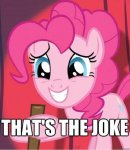However you get them, it does take less skill to play a character with higher stats.
OK, then.
I also disagree that it takes more DM reading/gaming. Primarily, it takes better planning and strategy.
The DM is the world, the planning & strategy that works is the planning & strategy you convince the DM will work. The planning & strategy and 'skilled play' and system mastery that work off the mechanics rather than the DM's judgement are dependent on the numbers, and bad numbers hurt relative to good, regardless, in that case.
So, yeah, if one player rolls high and another low, there's an imbalance there, a potentially severe one - and, yes, if the player with bad stats can bring his A game(ing the DM) to the table, he can make it up. And if the other guy does so better, he's just further behind...
When you have higher stats(more hit points, better AC and saves, etc.), you can be more reckless and survive. Lower stat characters have to be more careful and plan better.
Rather the opposite, really. If your stats suck, you can be reckless, and, if you survive, might accumulate enough character-changing rewards to make it up - and if you don't, you re-roll. If you have great stats, you want to preserve that exceptional character, so you play more cautiously, pay more attention, and plan better...
...but, you're more likely to count on the results of that, on having a big fat bonus, and angling to get to make the right check, rather than knowing that checks are to be avoided, and you have to angle to avoid them and persuade the DM to narrate success for your actions as much as possible...
Stepping back a bit but, it appears to me that this is fundamentally just a riff on the whole rules as physics debate. Do the mechanics model the in-game reality or are they simply tools we use to resolve events? Personally, I favor the latter rather strongly. Mostly because when you try to extrapolate game mechanics into the larger world, all sorts of bizarre discrepancies crop up (10% of your population being physically or mentally challenged as an example from this thread).
Nod. It's all on the 'random generation is more realistic' side of the ledger. (And, IMHO, only as valid as the generation system is outside of player control - more valid with random-in-order than random-and-arrange, more valid if players choose class but not race & certain backgrounds, etc...)






